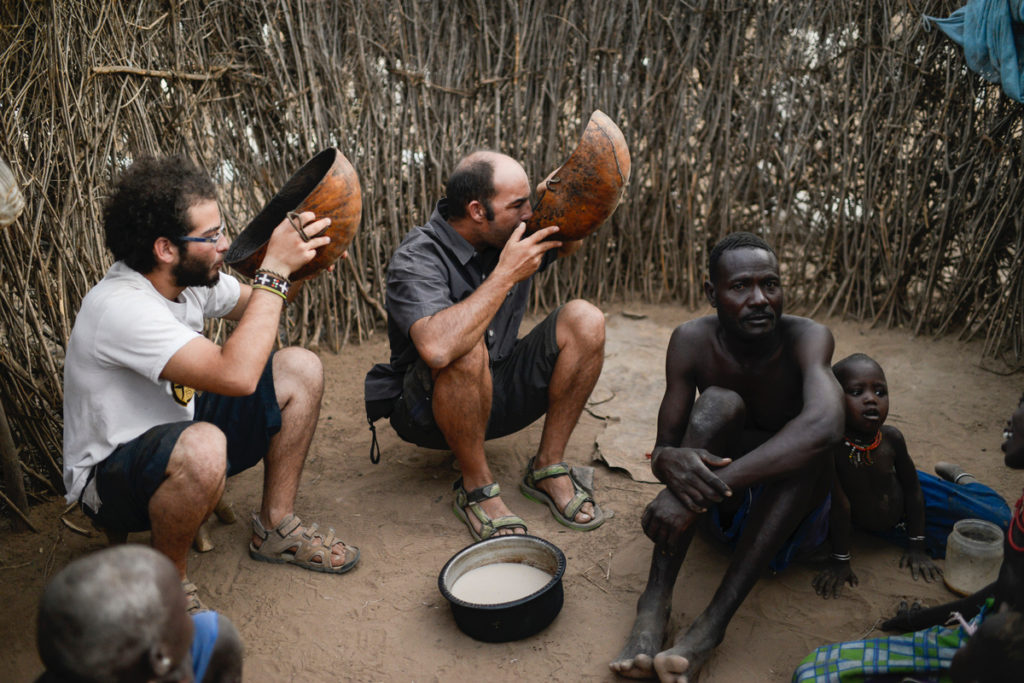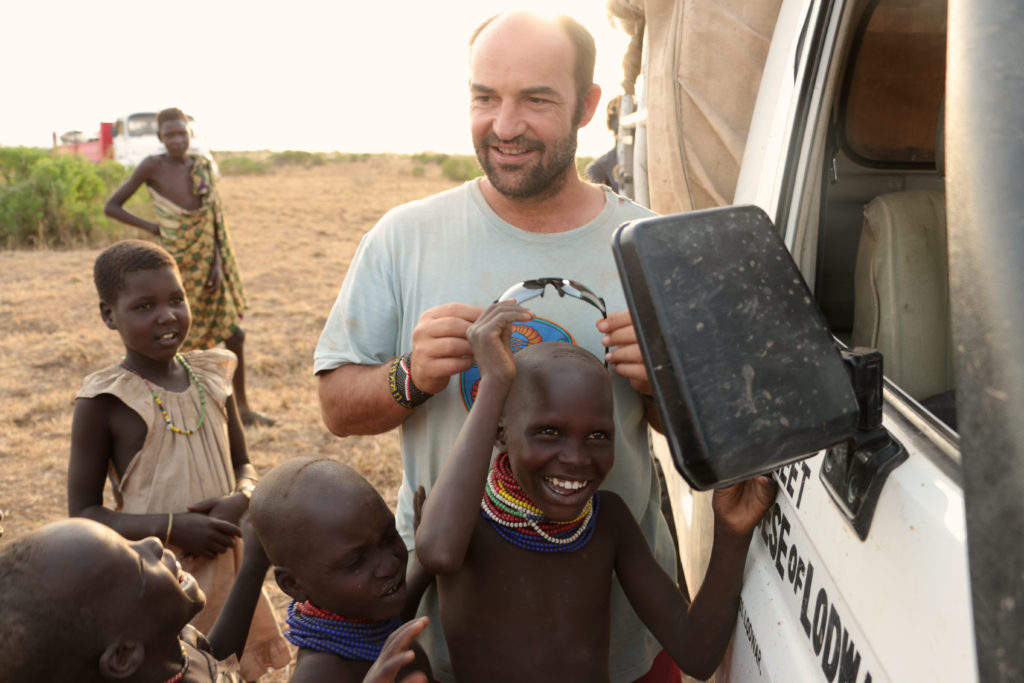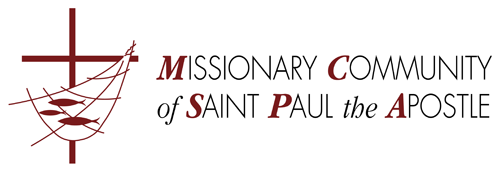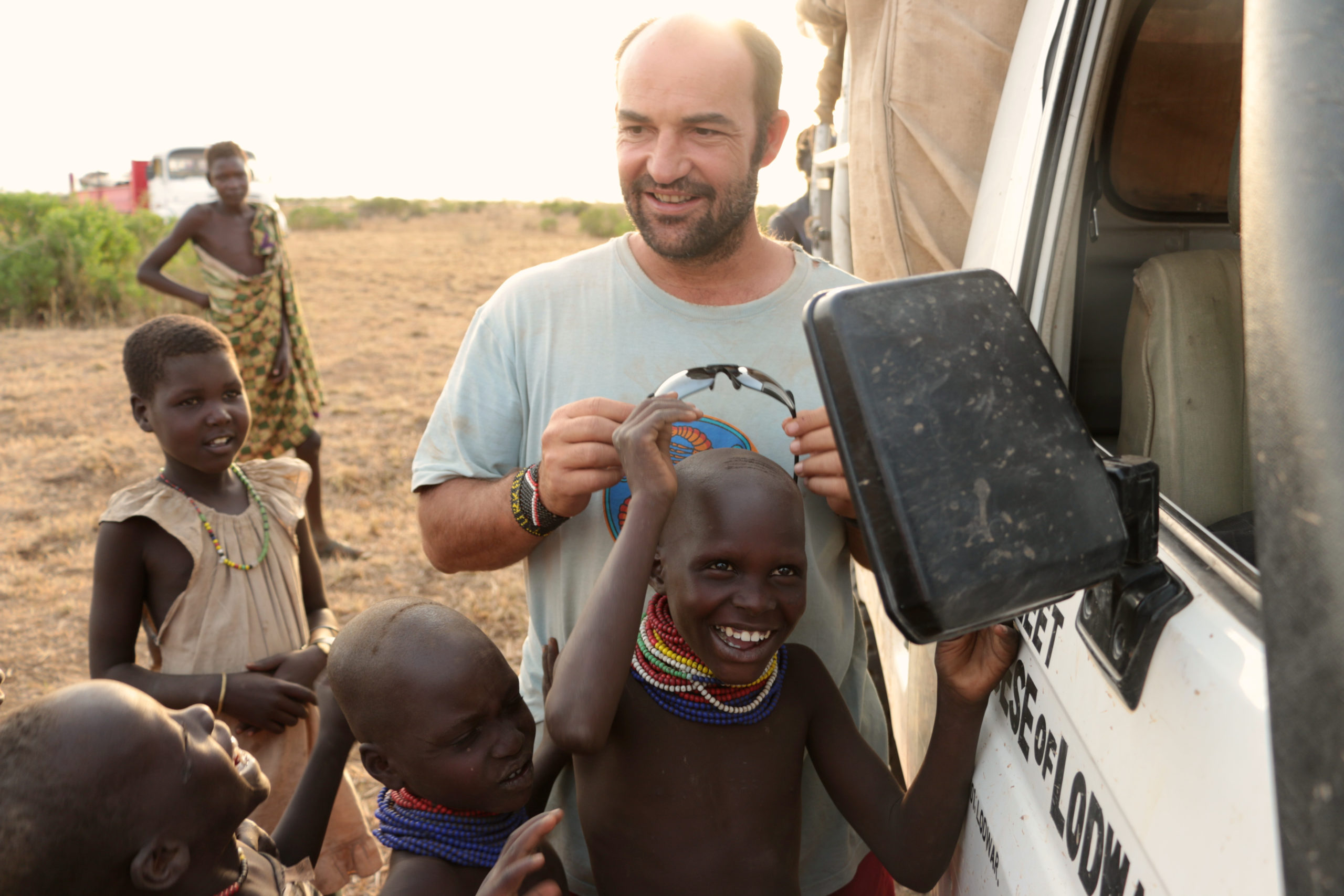For twenty five years, my life has been linked to this community; twenty two of them in Africa, and the last thirteen years as a priest. It is not easy for me to look back and to try to summarize my vocational journey in a few lines. I cannot say that I was a very religious person at first. I “discovered” God gradually, through the evidences, through an endless symphony of people, events, challenges, joys and defeats, which, I would say, were orchestrated by God Himself.
I come from a humble family that migrated to Barcelona in search of work. When I was around sixteen or seventeen years old, I went through a phase of disenchantment with what society had to offer. I used to dream, in the rainy autumn evenings about changing the world with my songs. It was not that I had many songs or that I was any good at music, but it was more an aspiration than a fact! I suppose that almost everyone experiences something of the sort at that age, but at the end of it all, crude reality always ends up imposing itself. Before we realise it, we are swept away by a flash flood of events indispensable for our survival: studies, finding – and keeping – a job agreed, the almost-compulsory relationships, getting a car and a house, starting a family, making friends … The beast ends up drowned in the troubled waters of social responsibilities, taking with it all those chimeras; they are left aside on the background, forgotten in the drawer of those pleasant and naïve teenaged dreams. I was lucky to meet certain people like Angel, Lourdes, Paco and others who offered me a saving hand and took me out of those raging waters, opening the gate of a new world where I did not have to exchange my dreams for a plate of lentils. God erupted in my life and offered me a real way of materializing my utopic unquietness. The first thing that attracted me was the life in common; I liked it so much that I decided to remain. In Western societies, friendship has been relegated to a secondary role, below that of couples. It is not easy for us to accept as valid any type of love, outside the context of family that is not sexual. Learning to live friendship as a complete way of loving helped me rediscover the words and actions of Jesus, which then became alive and full of sense to me. The Gospel became a reality and an interactive map for my daily life: “… And he will put the sheep at his right hand and the goats at the left. Then the king will say to those at his right hand, ‘Come, you that are blessed by my Father, inherit the kingdom prepared for you from the foundation of the world; for I was hungry and you gave me food, I was thirsty and you gave me something to drink, I was a stranger and you welcomed me, I was naked and you gave me clothing, I was sick and you took care of me, I was in prison and you visited me.’ … And the king will answer them, ‘Truly I tell you, just as you did it to one of the least of these who are members of my family, you did it to me.’” (Mt 25:31-46). The next logical step was to put into practise what I had read from the Gospel and to not be indifferent to the sufferings of others. This was what pushed me to go to the missions in Kenya to help. During the years that I was in Kenya, God erupted in my life and offered me a real way of materializing my utopic unquietness.
The love, charity, compassion and generosity towards the suffering, brought me to discover Christ and my vocation in following Him – to be a “sheep”. All this may sound too idealistic, but it is not. In the words of Leonard Cohen, “Love is not a victory march; it is a cold and broken halleluiah”. It is not easy to go out of ourselves and set the needs of others before ours; to abandon comfort zones, routines, plans and securities that one tends to create and to put everything at the service of an unknown person who comes to your door. This is a difficult task. It is usually a disturbing, burdensome, cumbersome and costly task. It does not flow out automatically from us, we need some- body to help, correct and admonish us. Thanks to people like Paco, I experienced that often we are the ones who put limits to reality, and that what we think as impossible is in reality possible; that God is a factor we need to take into ac- count. We fear dying to ourselves and sacrificing for others. Each sacrifice is a small death on the cross and that scares us. But even though it may look like a contradiction, after the cross there is life. It is precisely when you lose yourself to make others happy, that you find true happiness; you experience the resurrection (cf Mt 16:24-26).
It was through Paco that I discovered my priestly vocation; that the Eucharist is nothing other than the celebration of the fact that Jesus sacrificed His life for us, that He gave us all that He had, His flesh and blood to feed, cure and free us. At the same time, the Eucharist is an invitation to imitate; it is the sacrament of love, charity, generosity and compassion. It is a sacrifice of giving food to the hungry, water to the thirsty, clothes to the naked, hospitality to the stranger, visit to the sick and the prisoners, opening the eyes of the blind, among other noble works of mercy. The Eucharist means going through, in our daily lives, the cross and the resurrection of Christ.
I am still on this long journey of apprenticeship in love. It is a never-ending journey where every stretch is different, unpredictable, and never stops surprising me. If I had to choose a text that could define all this, then I would take one from our patron, Saint Paul the Apostle: “If I have the eloquence of men or of angels, but speak without love, I am simply a gong booming or a cymbal clashing. If I have the gift of prophesy, understanding all the mysteries the- re are, and knowing everything, and if I have faith in all its full- ness, to move mountains, but without love, then I am nothing at all. If I give away all that I possess, piece by piece, and if I even let them take my body to burn it, but I am without love, it will do me no good whatever … In short, there are three things that last: faith, hope and love; and the greatest of these is love.” (1Cor 13:1-13).
Fr. David Escrich, MCSPA






